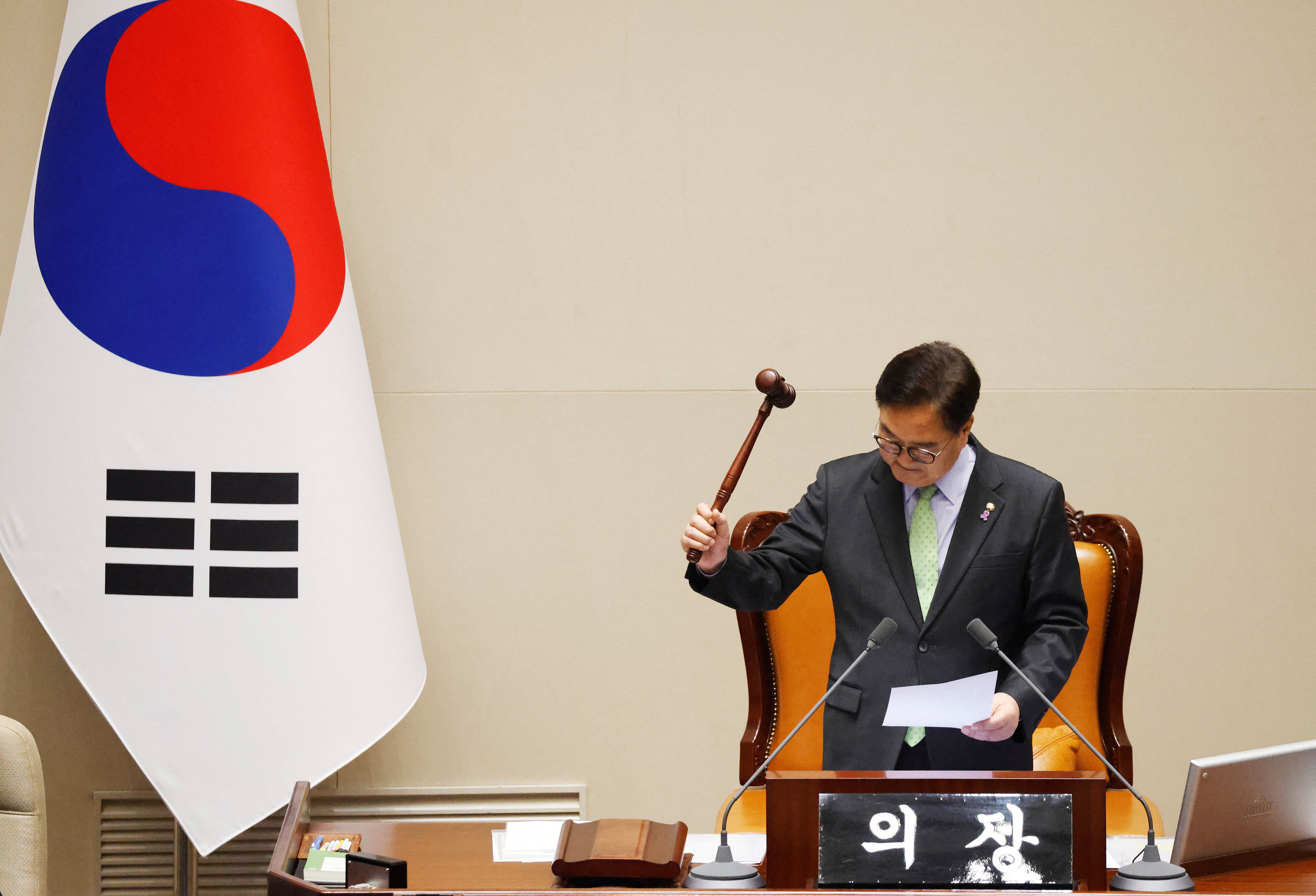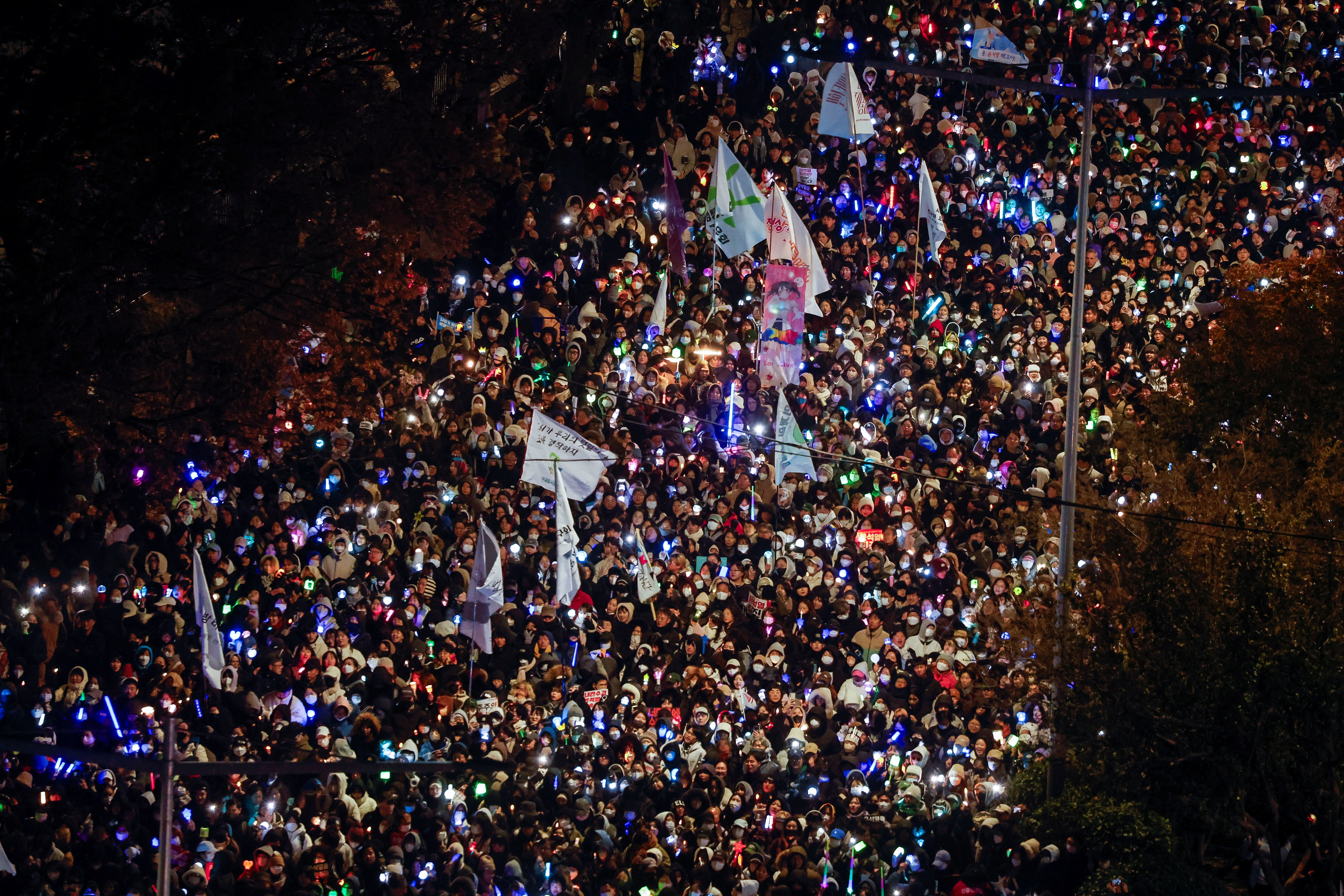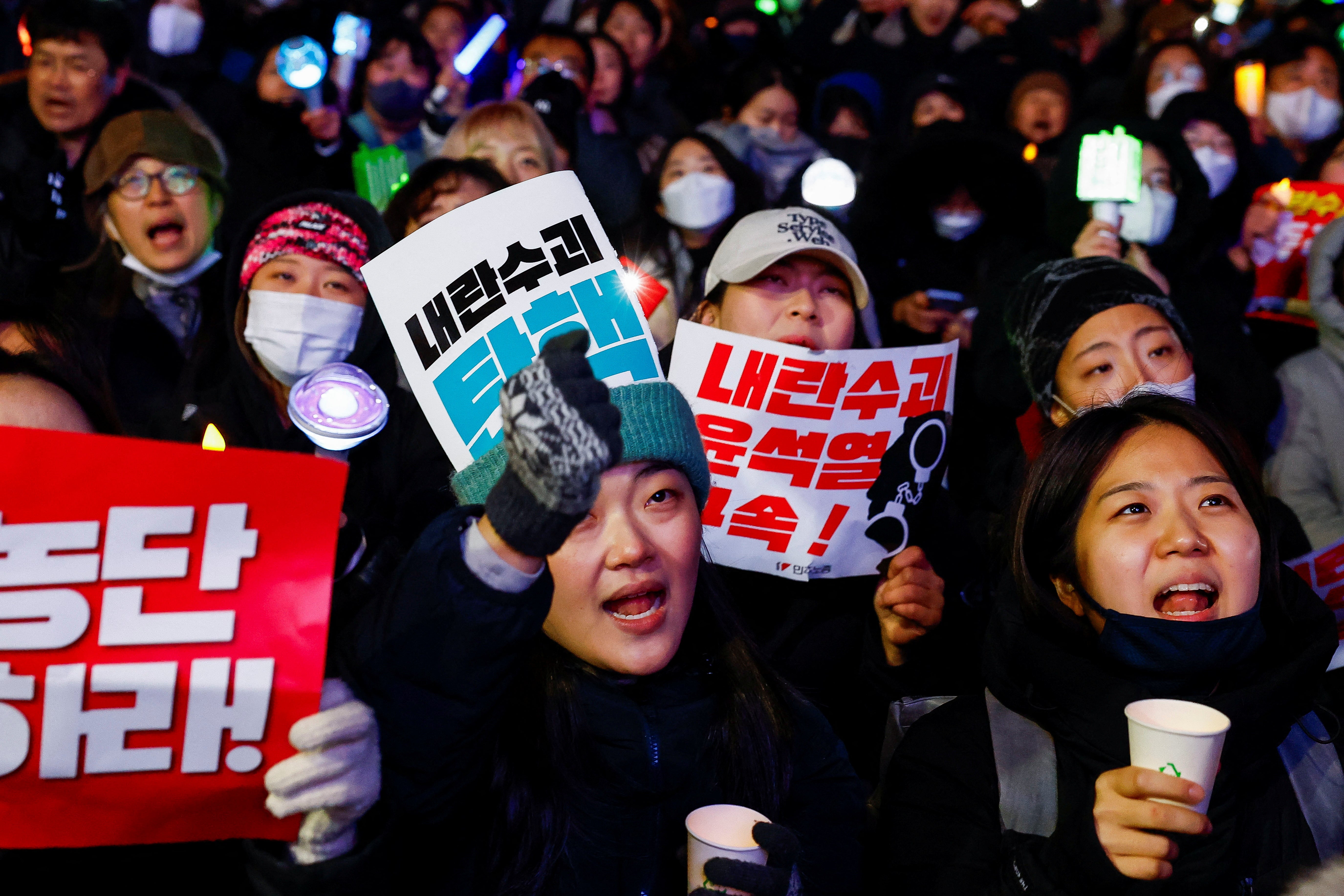South Korean president survives martial law impeachment vote after ruling party’s MPs boycott
Yoon Suk Yeol shocked the nation and the world when he gave the military sweeping emergency powers
Your support helps us to tell the story
From reproductive rights to climate change to Big Tech, The Independent is on the ground when the story is developing. Whether it's investigating the financials of Elon Musk's pro-Trump PAC or producing our latest documentary, 'The A Word', which shines a light on the American women fighting for reproductive rights, we know how important it is to parse out the facts from the messaging.
At such a critical moment in US history, we need reporters on the ground. Your donation allows us to keep sending journalists to speak to both sides of the story.
The Independent is trusted by Americans across the entire political spectrum. And unlike many other quality news outlets, we choose not to lock Americans out of our reporting and analysis with paywalls. We believe quality journalism should be available to everyone, paid for by those who can afford it.
Your support makes all the difference.South Korean president Yoon Suk Yeol has survived an impeachment vote – prompted by his short-lived attempt to impose martial law – after members of his party boycotted the move.
Only 195 votes were cast, which was below the 200 needed for the vote to count, and the motion was scrapped.
The opposition needed at least eight votes from Mr Yoon’s conservative People Power Party (PPP) to reach the two-thirds majority needed to impeach.
As PPP lawmakers departed after casting votes on a separate motion, some people shouted and cursed them. Only three from Mr Yoon’s party voted.
A crisis in South Korea exploded late on Tuesday when Mr Yoon declared he was imposing martial law, leading MPs to rush to parliament to stage a vote against it. Some climbed over walls and pushed past soldiers in order to cast their votes.
The order was lifted by the cabinet before dawn on Wednesday.
Following the scrapped motion, the National Assembly speaker Woo Won Shik said it was unfortunate that not enough lawmakers participated for the votes to be tallied.

He added: “The entire nation is watching the decision being made here at the National Assembly today. The world is watching.”
The main opposition Democratic Party vowed to try again, while Mr Yoon’s party said it would find a “more orderly, responsible” way to resolve the crisis. South Korea’s ruling party chief Han Dong Hoon said the president had effectively agreed to the plan.
The opposition Democratic Party said it will propose a new impeachment bill against Mr Yoon on 11 December and put it to a vote on 14 December.
Mr Yoon shocked the nation and the world on Tuesday when he gave the military sweeping emergency powers to root out what he called “anti-state forces” and overcome obstructionist political opponents.
He rescinded the order six hours later after parliament defied military and police cordons to vote unanimously against his decree.

The move plunged Asia’s fourth-largest economy into its greatest political crisis in decades, threatening to shatter South Korea’s reputation as a democratic success story.
Mr Yoon addressed the nation on Saturday morning to apologise for the “anxiety” caused by his attempt to impose martial law.
“I leave it up to my party to take steps to stabilise the political situation in the future, including the issue of my term in office,” he said, promising there would be no second attempt to impose martial law.
Some had expected him to use the brief TV appearance to resign from office but he stopped short of doing so.
Mr Hoon said after the address that the president was no longer in a position to carry out his public duties and his resignation was now unavoidable.

His party said it could not allow a repeat of the 2016 impeachment of then-president Park Geun Hye, who left office after months of candle-lit protests over an influence-peddling scandal. Her downfall triggered the implosion of the party and a victory by liberals in presidential and general elections.
In scenes reminiscent of the protests against Ms Park, thousands of demonstrators holding candles flooded the streets outside parliament on Friday and Saturday nights, demanding Mr Yoon’s impeachment.
If Mr Yoon leaves office before his single five-year term ends in May 2027, the constitution requires a presidential election within 60 days of his departure.
Martial law has been declared more than a dozen times since South Korea was established as a republic in 1948, the last time in 1980.

Join our commenting forum
Join thought-provoking conversations, follow other Independent readers and see their replies
Comments